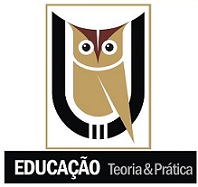Research and continuing education teacher: (in) ways of inclusive education
DOI:
https://doi.org/10.18675/1981-8106.vol24.n46.p04-22Keywords:
Continuing Education Teacher. Research. Teaching Knowledge. Inclusive Education.Abstract
The text presents discussion about the relationship between research, continuing education teacher and reconstruction of teacher knowledge (TARDIF , 2007) and is referenced research conducted in a public school , with teachers from the final years ( sixth to ninth ) Elementary School. The objective of the research was to investigate formation processes developed in school and employed as instruments semi-structured interviews with these teachers. Also analyzed were of his texts on teaching practice, including the Research Reports prepared by teachers participating in the research project developed at the school, which aimed at solving the difficulties of these professionals with students requesting other forms of teaching and learning. The survey results indicated that, with a focus on contemporary reality and the students and the school, the research on their own practice and the writing process that promote dialogues and reflections necessary reconstruction of knowledge of teachers. Specifically in relation to students who mobilized searches teachers, this new knowledge and making the teacher can contribute in their learning through the construction of school education really inclusive.Downloads
Additional Files
Published
How to Cite
Issue
Section
License
Authors who publish in this journal agree to the following terms:
a) Authors assign copyright to the journal, with the work simultaneously licensed under the Creative Commons Attribution License that allows sharing of the work with acknowledgment of authorship and publication in this journal.
b) The policy adopted by the Editorial Committee is to assign copyright only after a period of 30 months from the date of publication of the article. After this time, authors interested in publishing the same text in another work must send a letter to the Editorial Committee requesting the release of the assignment of copyright and wait for a response.
c) This journal provides public access to all its content, since this allows greater visibility and reach of published articles and reviews. For more information on this approach, visit the Public Knowledge Project, a project that developed this system to improve the academic and public quality of research, by distributing OJS as well as other software to support the public access publication system to academic sources. The names and email addresses on this website will be used exclusively for the purposes of the journal and will not be available for other purposes. This journal provides open any other party  This work is licensed under a Creative Commons License
This work is licensed under a Creative Commons License











